Over the days of October 18th and 19th, 2022, the Oncology & Precision Medicine Conferences 2022 were held at Alderley Park, Cheshire, UK, by Bionow. Usually held as two separate conferences, rescheduling due to the COVID-19 pandemic presented a unique opportunity for researchers and industry to come together to explore the relationship between Oncology and Precision Medicine.
Keynote talks and panels discussed topics ranging from clinical trials, to artificial intelligence, to the importance of hearing the cancer patient's voice. During the conference, we caught up with some of the speakers to learn more about their work, what they were presenting, and their thoughts about the future of Oncology and Precision Medicine.
Please could you introduce yourself and tell us about your background within Oncology/Precision Medicine? What inspired your career?
I'm Tony Hickson. I'm the Chief Business Officer at Cancer Research UK (CRUK) and Cancer Research Horizons, the innovation arm of the charity. My career started in the biopharma and diagnostics industries initially and then I came out of the lab and moved into business development.
After a brief stint in a start-up medical company, I moved jobs to Imperial Innovations, the technology transfer arm of Imperial College London. We took that business on a remarkable journey culminating in listing the company on the stock exchange to raise capital to invest in Imperial start-ups. With time it became Touchstone Innovations, a venture capital company investing in technologies emerging from Imperial and the wider ecosystem. Around five years ago, following the merger of Touchstone with IP Group, another big investment company, I moved on to Cancer Research UK.
My team’s job is to help researchers get their ideas out of the research lab and into commercial development with industry and investors. We do this via striking collaborations and IP licensing deals with biopharmaceutical companies, AI and diagnostic companies. We also form new start-ups and invest in them via our seed fund.
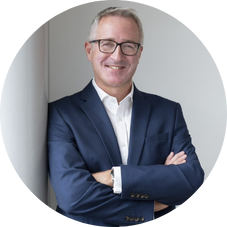 - Tony Hickson, Chief Business Officer , Cancer Research UK and Cancer Research Horizons
- Tony Hickson, Chief Business Officer , Cancer Research UK and Cancer Research Horizons
My name is Sherif El-Kamisy. I am a pharmacist in training. I did my Ph.D. at the University of Sussex in Brighton, then did my post-doctoral training at St Jude Hospital in the U.S. Then I came back with the fellowship fund, the Welcome Trust to set up my lab in Brighton. I moved to Sheffield and then to Bradford when I became the Institute of Cancer Therapeutics Director at the University of Bradford. I work in DNA repair. We try to understand the mechanisms of how genomic damage takes place, how they are repaired, and the impact of this on human health, particularly in cancer and neurological disorders. - Professor Sherif El-Khamisy, Director/Associate Dean(R & I), University of Bradford
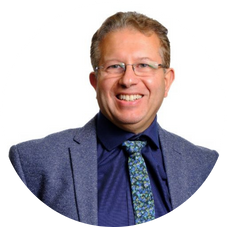
I'm Jenny Barnett. I'm the CEO of Monument Therapeutics, a neuroscience specialist drug development company. I'm a psychologist by training, so I did an undergraduate in psychology, moved into a department of psychiatry for post-graduate, and took a little detour because I got interested in genetics, so I went to the States for a year to work in a psychiatric genetics group.
Coming back from that, I decided I didn't want to be in academia anymore. I worked for about a decade at Cambridge Cognition, a company that develops software that measures very specific networks of brain function. It looks like a computer game, so it's easy to complete from the patient's point of view. Monkeys and rats can also use the same software, so it's useful in drug development, and pharmaceutical companies use it to measure a drug's effect on the brain objectively.
We worked on many neuroscience drug development projects for pharmaceutical companies and then decided we'd like to have a crack at doing it better ourselves. We set up Monument Therapeutics during the COVID-19 lockdown. We're based here at Alderley Park, but we're largely virtual. We have two drug development programs that use those digital bioma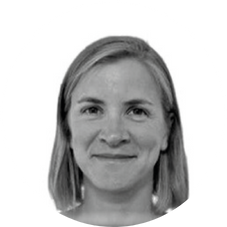 rkers to define the patient population that we think a drug will work for, and then we use new formulations of old drugs to try and treat patients better. - Jenny Barnett, Chief Executive Officer, Monument Therapeutics
rkers to define the patient population that we think a drug will work for, and then we use new formulations of old drugs to try and treat patients better. - Jenny Barnett, Chief Executive Officer, Monument Therapeutics
I'm a cancer pharmacologist. I've been working in cancer pharmacology for over 35 years now. My initial PhD studies were on precision medicine as applied to cytotoxic drugs and trying to develop tests to individualize patient therapy. Since then, I moved on to study drug discovery, and I went into the drug discovery area and have been involved in developing various anti-cancer agents throughout my career. - Professor Roger Phillips, Associate Dean of Research Innovation and Knowledge Exchange, Department of Pharmacy School of Applied Sciences, University of Huddersfield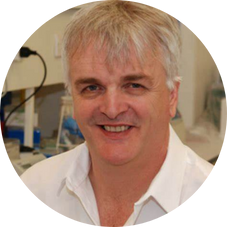
You are currently speaking/presenting/exhibiting at Oncology & Precision Medicine Conferences 2022. Could you tell us a little bit more about what you are exhibiting/presenting?
At the Institute of Cancer Therapeutics, we focus on three main pillars; the basic discovery signs, making molecules and drugs for targets, target validation, and the preclinical development.What I talked about today is mainly the discovery signs. Particularly, how can we utilize our knowledge of how cells repair DNA damage and exploit this to treat cancer in a more targeted or precise way. In a study we published in Nature last week, we found high genomic damage in non-protein coding sequences, highlighting the need for doing whole genome sequencing rather than just focusing on the exon because a lot is happening outside the exons. - Professor Sherif El-Khamisy

Image Credit: Katy Pack/Shutterstock
In my talk, I spoke a bit about the history of precision medicine in terms of the previous attempts that have been made to individualize patient therapy. Then I moved on to the more modern approaches, where targeted therapeutics are being developed. There are some really good opportunities to develop precision medicine techniques and get them working in the clinic. The real challenges I see are around the cellular heterogeneity on genome instability. Those issues are very difficult, particularly in advanced disease where things are very unstable. The real challenge is, can we develop the tools to include the variability of an individual patient's tumor and the metastases that may have multiple clones and phenotypes? - Professor Roger Phillips
The Oncology & Precision Medicine Conferences 2022 are focusing on the relationship between Oncology and Precision Medicine. What has this relationship looked like in the past, and what can we learn from this relationship?
Historically, it's always been a clinical problem. This heterogeneity in response, clinicians see it every day. Some patients do well; some patients do poorly. For those patients that do poorly, they're just getting the side effects of the drug. It's not benefiting them in any sense of the word.
This particular problem, this idea of precision medicine, has been known for many years. So I think the advent of new targeted therapeutics opens up a lot more opportunities to develop precision medicine tools. There are examples now where it is working in the clinic.
There are many challenges to overcome, not just in terms of how you apply precision medicine to patients but also in terms of drug discovery. - Professor Roger Phillips
Where we sit, in psychiatry and neurology, we look at the world of oncology and think, "Wow, that's so advanced. They actually measure what kind of tumor you have and develop a drug that works on that tumor." That's so far removed from what we do in psychiatry, where you and I might both go to our doctor and say we're feeling a bit sad. We both get diagnosed with depression, and the reality is we might have biologically almost nothing in common. We have this one symptom that's the same. We have a lot to learn from precision medicine and oncology. - Jenny Barnett
Due to the ongoing COVID-19 pandemic, many in-person exhibitions and conferences have been put on hold. Why is it important for researchers, companies, and organizations to collaborate and share ideas and new innovations at exhibitions?
I think it's important that we get out there and engage with researchers, investors, industry, and academia. We're trying to encourage researchers to think about how they translate their science into products and services that benefit cancer patients. We want researchers to be entrepreneurial and engage with industry as well as being great academics. My team’s role is to make that easier for them, lower the barriers to engage, and give them access to translational grant funding, as well as resources like drug discovery capabilities and investment venture capital.
In terms of industry, we are more outward facing. We're looking for companies to collaborate with us or sometimes license intellectual property from us. Finally, we have lots of conversations with investors as we are always looking for co-investors to get some of these early-stage cancer start-ups off the ground.
What did we see during the pandemic? We saw a lot of the labs close and stop operations. Despite this, we initially saw a small spike in invention disclosures (new ideas from our funded researchers), which we surmise was due to scientists feeling freed up from the burden working in the lab and having a temporary window to think about translational ideas. However, once we got through that spike, the numbers of new ideas began to drop compared to what we were used to seeing as labs remained closely. Pleasingly, labs have now reopened across the UK and it’s great to be back speaking to scientists and reengaging with their research.
A key change in terms of engaging with researchers that we made a few years ago was to create a dedicated search and evaluation team, spread all around the country and embedded in the local environment. We found that if you simply cluster our staff in our office in London, people don't see you and they don’t always think about translating their ideas. To encourage such thinking and to make it easier for researchers we reorganised ourselves to put some of our staff into cancer research hubs all around the UK to ensure that researchers will bump into them by the coffee machine, meet them at lab meetings, and engage with their research. We’ve seen a good response from the community since then. - Tony Hickson
It's fundamental because virtual meetings are an okay substitute, but there is no substitute for in-person meetings because the interactions you get are not planned. For example, I had been talking to someone I met for the first time today. I was not planning to talk to him. We talked and had nice ideas about projects. That would've never happened if it was in a virtual meeting. It's essential for promoting science translation, interacting with businesses, etc. - Professor Sherif El-Kamisy
What are some of the current challenges to the early diagnosis and prevention of cancer, and what are some of the latest advances in addressing these challenges?
If you can diagnose cancers earlier e.g. at stages one and two, the data's there to show that's where you make a real difference to patient outcomes. The problem is that the commercial model is essentially broken for developing new diagnostics. It's very hard to attract investment capital into that area compared to drug development. The fact that we also have an NHS that, understandably, is very evidence-based means that a large amount of validating data is required to get a new diagnostic approved here. The combination of those and other systemic factors means that it's very hard to get a new diagnostic idea developed, approved and reimbursed in the UK i.e. to have reached the point where it actually benefits patients.
To do so, you have to cross two innovation gaps. You've got to bridge the first gap in order to get an idea out of the research lab and turned into a product, but then you have a second challenge to get it adopted (accepted and paid for) by the NHS. CRUK, working with other stakeholders, has recently published an early detection road map for cancer that suggests a whole suite of things that need to change to fix these issues and bridge these gaps. Cancer prevention is also a challenging area, with a different set of problems. These include the long-term nature of measuring whether your preventative measure actually works.
Obviously lifestyle interventions like not smoking and sun exposure reduction work well. However, if we take the development of new chemo-preventative products, like a statin-type analogue for cancer, you need extremely long-term and very expensive studies to determine if you are actually preventing cancer. In addition, such a drug would be being given to healthy people before they have disease, so it needs to be incredibly safe. The time and expense of developing such drugs can put people off from investing in this space. I think these types of areas are where charities like Cancer Research UK and other government bodies have a role to play and are increasingly stepping in to address these issues.
Cancer Research UK developed in a number of different ways of engaging with industry over the years. For example, we form long term alliances with industry to develop new drugs from the beginning right through to new clinical studies in people and had 5 or 6 different units to do this. We also provide our researchers with access to cutting edge technology platforms such as drug fragment and antibody libraries and CRISPR screening capability (the latest in gene editing). However, it became clear with time that having all these facilities separately badged across the UK was becoming confusing for our researchers and for industry to engage with. So, this year we decided to form to bring all of our innovation and translational support capabilities together under one cohesive brand, Cancer Research Horizons , with one executive management team, and one budget. That means now all of our drug discovery functions, response mode translational grants, and commercialisation functions (intellectual property, venture capital, and seed funding) are all under one easy to access website, brand and team...
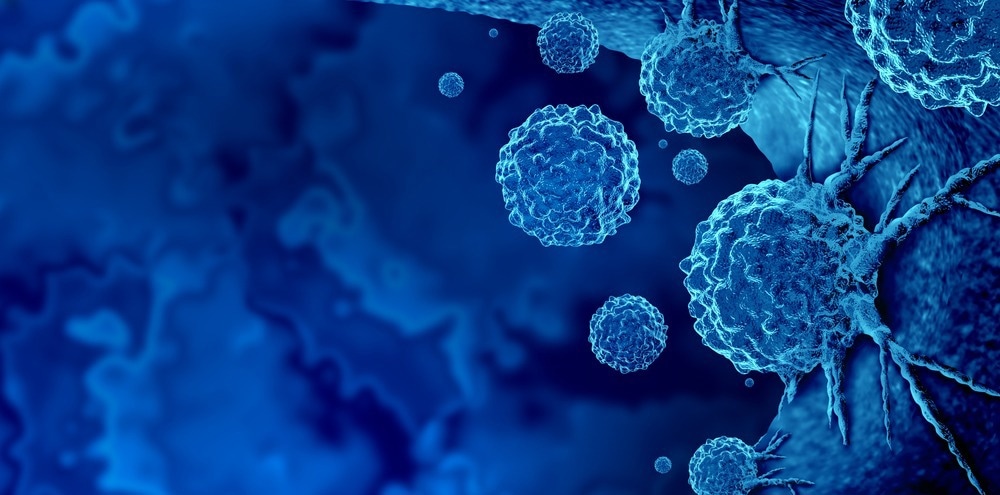
Image Credit: Lightspring/Shutterstock.com
We've already made remarkable advances in treating cancer, with oncologists today armed with so many more choices than they had in the past. New exciting treatment approaches such as ADCs, bispecifics, and T cell therapies are now coming into the market and making a difference to patient survival. But I believe there's so much more to come. The research my team is exposed to is very early stage, and still many years frombeing ready to use in the market. However,we’re already starting to see AI-designed drugs, multicancer detection techniques, mRNA cancer vaccines, gene editing and new cellular therapeutics that can target solid tumours and are available off-the-shelf. Whilst they’ve been a long time in the making, I’m confident those things are all coming, probably in the next 10 to 15 years. As such, the future is bright in terms of the number of exciting new ideas coming through.
This is not to say however, that we have it all sorted. Cancer still kills 26,000 people a day globally. We need more research into some of the fundamental challenges in cancer such as understanding metastasis. For this reason we have our global ‘Cancer Grand Challenges’ programme that we jointly fund with the NCI in the USA. At the same time, we also need to ensure that we don’t neglect areas that represent smaller markets and are harder to attract investment – for example rare cancers and cancers of children and young adults. For the paediatric oncology space we need move beyond just repurposing adult drugs for childhood cancers, which is the current paradigm, and instead think about developing entirely new molecules for some of these childhood cancers that need a completely different approach. Cancer Research UK is actively thinking about these areas and how it might partner with others to solve these problems. - Tony Hickson
What does the future of Oncology and Precision Medicine look like to you?
The most exciting recent advances have been in imaging. The more we can detect early, then I think the quality of cancer care will be improved. The future is for AI and imaging in terms of early detection. Much better than molecular markers, in my opinion. - Professor Sherif El-Kamisy
The lack of drug development success in psychiatry has largely been driven by the fact that if you're not measuring something biologically precise, it's very hard to target a drug. We think this will change in the next ten years. We're doing that using these digital biomarkers that are like computer games. Other people are doing that using neuroimaging or EEG. We're all trying to measure specific brain networks so that we can say, "Okay, the problem with you is in this network, not that network, and therefore this might be a more appropriate drug than others." That's important for drug development. - Jenny Barnett
Where can readers find out more?
About the interviewees
Tony Hickson
Tony Hickson is the Chief Business Officer for Cancer Research UK. He leads the Commercial Partnerships team responsible for the commercialization of IP from CRUK funded projects, new start-up creation, licenses and corporate alliances. Prior to this Tony was the Managing Director of Imperial Innovations Ltd, responsible for intellectual property sourcing, licensing and spin-out creation for technologies arising from Imperial College London. During this tenure, Tony also spent 5 years as an executive director on the board of Touchstone Innovations PLC, an investment company listed on the London Stock exchange investing in deep science projects from UK universities. Prior to joining Imperial Innovations/Touchstone, Tony acquired 15 years of commercial and business development experience in bioscience companies including Wellcome Group R&D, Murex Biotech, Abbott Laboratories and Kalibrant Limited.
Professor Sherif El-Khamisy
Sherif El-Khamisy did his training as a pharmacist, obtained a PhD in genomic stability from the University of Sussex followed by training as a post-doctoral fellow at St Jude Research Hospital in the USA. He set up his lab in the UK in 2008 with a Fellowship from the Wellcome Trust and moved to the University of Sheffield in 2013 as a Wellcome trust Investigator. Sherif won a Lister prize fellowship and subsequently become a Fellow of the Lister Institute of Preventative Medicine. In 2014, he worked with Nobel Laurette, Zewail, and established a genomic centre in Cairo on personalized medicine. In 2018, El-Khamisy co-founded the healthy Lifespan Institute at the University of Sheffield. In 2020, he was appointed as the Director of the Institute of Cancer Therapeutics at the University of Bradford. In 2021, he became the Dean of Research and Innovation. The lab fuses genetics, cell biology with clinical expertise to discover new processes that maintain genomic stability. Pharmacologic targeting of these pathways has been widely used as anti-cancer therapeutics. His work is published in Nature, Cell and Science with over 5500 citations and an H-index of 37. He is a Fellow of the Royal Society of Biology, the Royal Society of Chemistry, and his work was recognized by AstraZeneca (UK), the State Award of Excellence in Medical Sciences, the Nobel Laurette Zewail (Caltech, USA), Shoman Foundation (Jordon), the Lister Institute (UK) and the Wellcome Trust (UK).
Professor Roger Phillips
Following a BSc in Marine Biology and Biochemistry (Joint Honours) from University College of North Wales, Bangor, Roger specialised in Cancer Pharmacology gaining his PhD in 1988 from the University of Bradford (under Profs John Double and Mike Bibby). After an initial postdoctoral position in Bradford, he moved to the School of Pharmacy, University of Southern California, Los Angeles to work with Dr Neil Gibson in 1991. He returned to Bradford in 1993 and secured academic appointments as lecturer (1996 to 2001), Senior Lecturer (2001 to 2003) and Reader (2003 to 1014) in Cancer Pharmacology. In July 2014, Roger was appointed as Professor of Cancer Pharmacology at the University of Huddersfield. He was also appointed as Director of Research in the School of Applied Sciences in August 2015.
His research focuses on the preclinical and early clinical evaluation of novel anti-cancer drugs with a specific interest in the tumour microenvironment as a target for drug development. His research has had clinical impact through the development of EO9 as a therapeutic drug for the treatment of superficial bladder cancer. He has published extensively in internationally recognised journals, has successfully supervised over 20 PhD students and continues to present his work at national and international conferences. He is a committee member of the European Organisation for the Research and Treatment of Cancer (EORTC) Drug Development Committee and the Pharmacology and Molecular Mechanism Group. He is also an editorial board member for the British Journal of Pharmacology.
Jenny Barnett
Jenny was Chief Scientific Officer at Cambridge Cognition where she led clinical trial, healthcare and R&D functions before spinning out Monument Therapeutics. She has an MA in Experimental Psychology from Oxford University, a PhD in the epidemiology of schizophrenia from the University of Cambridge, and completed post-doctoral work at Massachusetts General Hospital and the Broad Institute of Harvard and MIT. She is the author of more than 70 papers, six patents, and two pop science books and is an honorary member of the University of Cambridge Department of Psychiatry.